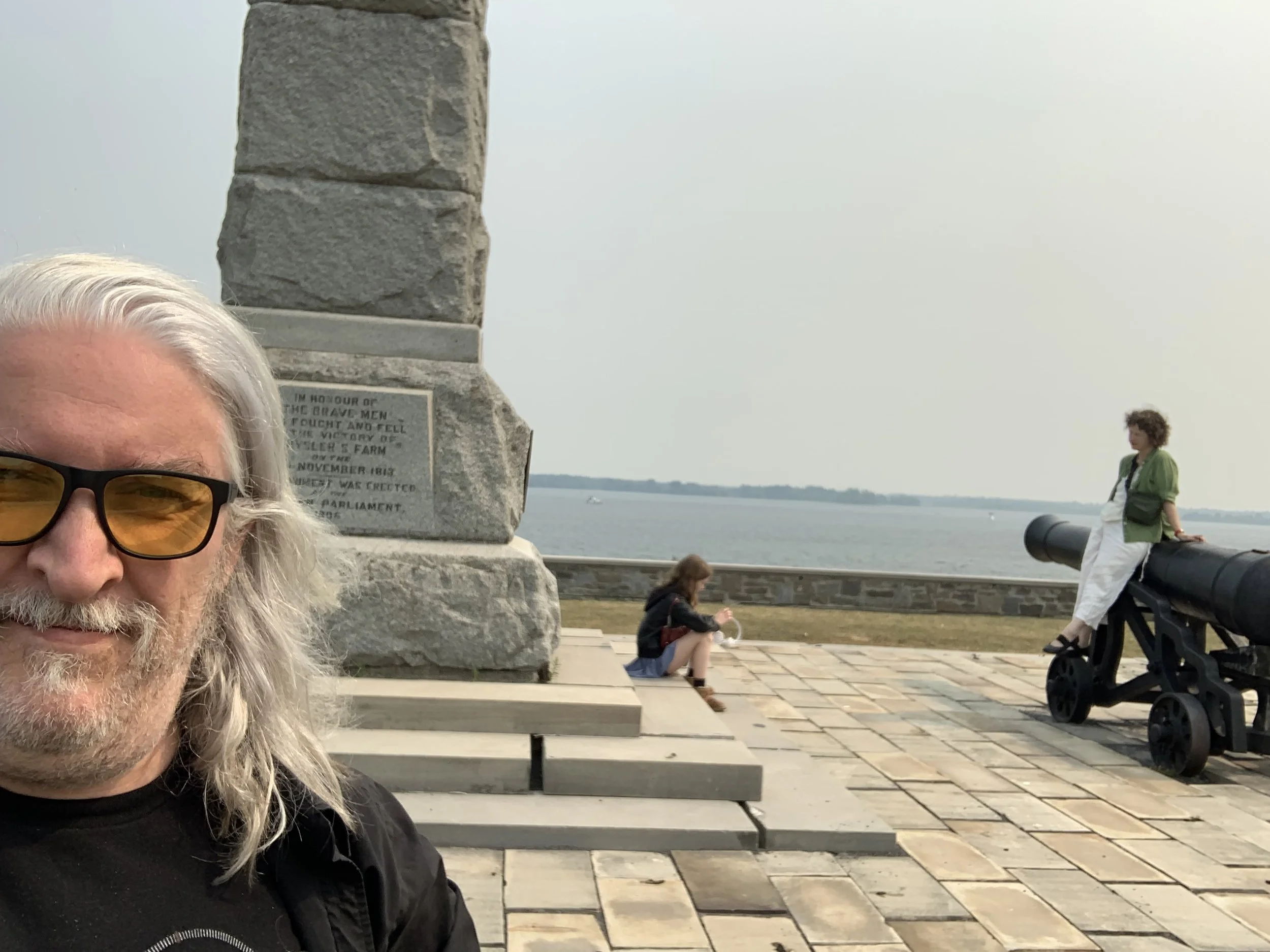“Easter Parade” by rob mclennan
Photo Credit: Naitian(Tony) Wang
Corrupted by the cruelty in beauty, is Art a luxury or necessity?
~Susan Howe, My Emily Dickinson
1.
Lydia resists my attempts to recruit her in housecleaning. I sort through the sediment layers of laundry, stuffed animals, blankets and abandoned colouring pages, as she does her best to ignore me. You can help clean the house, I tell her. She rolls her eyes or writhes on the floor. Today she retreats to the back yard, where she spends more than an hour on the swings.
Her mother, Crystal, sits in her basement office with the door closed. With newly-purchased headset, she pilots a perpetual zoom, chairing meetings into infinity. We’re not allowed to approach.
I fold towels in the living room, as CNN hums in the background. Eventually, Lydia stuffs her clean laundry well out of sight. Her room holds a sequence of labelled drawers and shelves her mother had set up in her closet. A basket that overflows with plushies. The hour she complains before fifteen minutes setting her dresses on hangers and into her closet, the bar low enough to sit at her level. A weekly ritual that becomes, to paraphrase Anne Carson, the task of a lifetime.
2.
Multiple remote interviews with Dr. Sanjay Gupta frame him in the same room, presumably from his home. A wooden railing lay behind him, as though circling an opening in the floor, exposing a level below. I search the internet, curious as to the naming and purpose of such an opening. Is this an air feature of an older home originally heated through multiple fireplaces, or is this more modern, adapted purely for aesthetics?
The internet offers “oculus,” from antiquity. Named from the Latin for “eye,” this circular opening in the center of a dome or in a wall, none of which sounds right. If that is what this is.
3.
Lydia is already six years old. When she was born, one could barely imagine us, here. In the middle of pandemic lockdown. She is out in the yard. She is out on the swings. Her long hair brushed by the breeze.
4.
On the phone, my mother reminds me, yet again, and with obvious pride, that Elvis Presley never set foot in England, but did change planes in Glasgow, returning from where his military service had him stationed in Germany, heading back home to Memphis. I’ve heard this story before: my grandfather a teen in the Highlands, and how he rejoiced in his proximity to such celebrity. He even had a friend whose cousin had seen Elvis set foot on the ground. Through my grandfather’s enthusiasms, my Edinburgh-born mother had grown up with the music of Elvis, national pride, and tales of the Stone of Scone. She dreamed of independence from England.
How isolations reduced us to a phone call, instead of a visit. Instead of our shared family dinner.
What my mother’s pride ignores: Elvis’ infamous manager, Colonel Tom Parker, who had slipped into the United States at twenty where he hid in plain sight, an undocumented immigrant unable to leave his adopted country’s continental boundaries for the rest of his life. To set up European shows for Elvis would have revealed his own lack of status. But for a handful of Canadian dates, every show Elvis Presley performed was landlocked, and within American borders.
Elvis never performed in Scotland. My mother doesn’t care. Elvis set foot in Scotland and not in England.
My mother, who always thought that our gravy boat was too showy. A measuring cup was enough.
5.
I set up a porch order. Fresh beans and dinner rolls. Some greens for the week, and two loaves of bread. We’ve already a ham, and potatoes we’ll slow cooker scallop.
Just the three of us, not including the dog. Lydia would count the dog.
Colonel Tom Parker, born in the Netherlands as Andreas Cornelis van Kuijk. Neither Colonel nor Parker, who claimed he was born in the United States. My mother, born in Edinburgh, fully retired to a condo in Old Ottawa East. Without fail, she walks two miles a day, and speaks to her sister in Dublin on Sundays.
6.
Easter: a morning I’m gifted handfuls of mangled chocolate, all the flavours Lydia has abandoned. Is that all I am to her.
I’ve a twitch in my right eye. A flicker. Is there a name for this. A hole, perhaps.
Artist Statement
I’m fascinated by the small moments of experience that accumulate into building a character, or the specifics of a story. There’s something about how someone might move their hand or speak in a certain cadence or tilt their head that provides far more information about them than might seem obvious. We’re made up of those moments, whatever they might be, and often the biggest and most profound experiences might be made up precisely out of what another might toss off as small, or unremarkable. We’re all affected differently by different things, and we’re not always conscious of what those events, those changes, might be.
I’ve heard my short stories described as character studies, but what really appeals to me is a sense of interiority: getting directly into a character’s thoughts. That’s where the story lies.
Photo taken at the site of the Battle of Crysler's Farm, Morrisburg, ON
Born in Ottawa, Canada’s glorious capital city, rob mclennan currently lives in Ottawa, where he is home full-time with the two wee girls he shares with Christine McNair. The author of some fifty trade books of poetry, fiction and non-fiction, his most recent titles include On Beauty: stories (University of Alberta Press, 2024), the poetry collections the book of sentences (University of Calgary Press, 2025) and edgeless (Caitlin Press, 2026), and the anthology groundworks: the best of the third decade of above/ground press 2013-2023 (Invisible Publishing, 2023). The current Artistic Director of VERSeFest: Ottawa’s International Poetry Festival, he spent the 2007-8 academic year in Edmonton as writer-in-residence at the University of Alberta. rob can be found at: https://robmclennan.substack.com/


